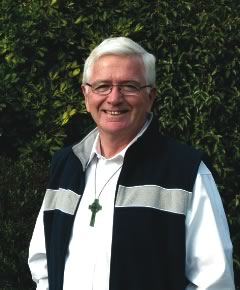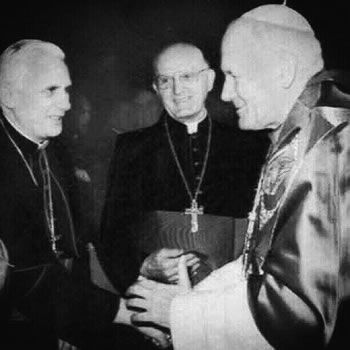A Jesuit Pope named Francis
After an eventful month the Church has a new Pontiff embodying two great spiritualities of the Church - the first Jesuit Pope and the first Pope called Francis. Not a young man or the first black Pope, but the first Pope from South America, an arena where some of the sharpest dilemmas of the modern Church have been played out: the response to systemic poverty and relationship with the civil powers. The new Pope has impressive credentials on both scores and is well placed to guide the Church forward.
For the second half of February the world was abuzz with the resignation of Pope Benedict. When he left office, evaluations of his papacy were everywhere, and criticisms of his ‘failure to govern’ have surfaced. Typically from people who wanted him to throw his weight around more. John Allen, the Vatican expert, reported an assessment of Benedict’s papacy likening him to a headmaster shut in his study writing learned essays while the school was on fire. However most assessments were kinder.
Then there was ‘Conclave fever’. Every media outlet had an angle. Secular media, who had largely ignored Benedict’s papacy, had a theory on who should replace him. I was astonished by the detail supplied to the hungry news outlets about the conclave - even to how the black and white smoke (fumate) was generated. And more astonishing still was the detail of voting at the last conclave which is supposed to be never divulged. As one retired cardinal observed “there must be one or several excommunicated cardinals around who spilled the beans”. No one has owned up so far. Don’t hold your breath.
Our new Pope has all that Jesuit formation to call on including the vow of loyalty to the Holy See. The discipline of prayer and discernment is the air that Ignatian disciples breathe. The new Pope was Jesuit Novice Master and Seminary formator in his early years, and is deeply versed in this Ignatian lore. One recent commentator, Gemma Symonds, hoped the Conclave would elect a “religious pope” i.e. a member of an Order, because he would be more likely to implement a gospel approach to authority, including the principle of subsidiarity. She has got her wish. The early signs look good. Now watch this space.
The choice of Francis as his name was intended to honour the great saint of Assisi, and as a pointer to the simplicity and love of poverty associated with that saint. Remember that Francis was the saint who at the risk of his life went to see the Sultan of Egypt, made some striking gestures of personal poverty, and rebuilt a church. The intention is unmistakable. Francis has already said the Church ought to be poor.
If he can during his papacy divest himself of any of the non-essential trappings of office, e.g. not being head of state, head of government, head of a bank, head of a militia, or having personally to appoint every Catholic Bishop in the world, he will have achieved a lot in restoring the office of the Vicar of Christ.


 Entries(RSS)
Entries(RSS)